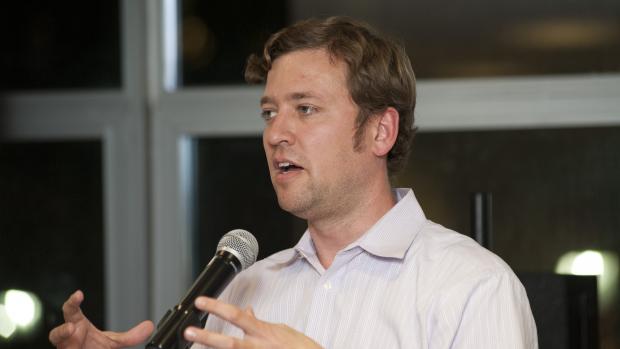Planning for Tomorrow’s City Today

Sipping sodas in Regna Lounge, Polytechnic Institute of New York University (NYU-Poly) students listened raptly on Thursday night during a talk titled “Smart Cities: How Technology Giants, Citizen Hacktivists, and City Hall are Battling Over Our Future.” The speaker was Anthony Townsend, the Director of Research at the Institute for the Future, and a former urban planning student in NYU’s Wagner Graduate School.
“Smart phones and mobile app marketplaces are probably the most important technologies driving smart cities,” said Townsend. Describing innovations used for surveillance in Brazil and for revolution in the Middle East, he asked his audience to ask themselves: “Will [technologies implemented today] be top-down methods of control, or tools that liberate people?”
Townsend praised the decades-long move in the United States, spurred in part by the Civil Rights era, from a technocratic model toward one in which urban planners are also activists seeking consensus and community.
“We need a civic code for building smart cities,” he said, before presenting his own 13-point code, which emphasized extended public ownership, transparent models, long-term thinking, and slow data. One city doing it right, he said, is Zaragoza, Spain, where a “citizen’s card” can now be used for buses, libraries, public bikes, and merchant discounts.
“Dr. Townsend presented a view of technology in which the biggest gains will be made by bringing together the people with technological skills, with the people who have the biggest problems,” said Professor Kristen Day, head of NYU-Poly’s Department of Technology, Culture and Society. “Only in this way can we ensure that technology is used as a tool to solve pressing urban problems, rather than focusing as a society on the issues—significant or not—that technologies can address.”
And what about New York? Townsend pointed to the 311 phone system: it aims to serve a diverse population but is actually used mostly by higher-income, educated callers. The example recalled the words of author-activist Jane Jacobs, with whose words Townsend closed his presentation: “Cities have the capability of providing something for everybody only because, and only when, they are created by everybody.”




